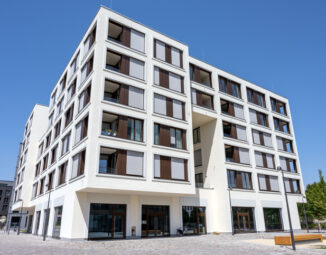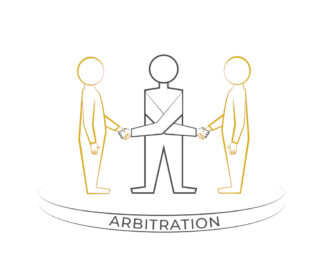Pop-up Shops: Legal Considerations for a Growing Trend in Retail Leasing
Pop-up shops have become an increasingly popular way for both new and existing retailers to introduce a business or to test a new product, service or location. The original pop-ups were seasonal, such as Halloween and Christmas stores or accounting services. However, the rise of e-commerce and social media and the resulting demise of brick and mortar stores and malls have caused this trend to evolve to include all types of businesses. Not only are start-ups and online retailers utilizing this marketing strategy, but many large, established brick and mortar stores are using pop-ups to further promote their brand or to sell excess stock and free up their permanent spaces for the sale of new inventory. Online retailers have used the concept to allow customers to try their products in person and to determine whether expansion to permanent physical locations is feasible. The settings for these shops include not only store fronts, but warehouses, kiosks in malls, pop-up tents on city sidewalks or counters or spaces in a portion of an existing tenant’s store, restaurant or bar.
Advantages for both Tenants and Landlords
The pop-up concept allows a new company to begin to market its business and test the viability of a location and product before making the financial commitment of a long-term lease. This type of arrangement also helps landlords, not only in the short run by producing rent and filling a vacancy that otherwise may not have been occupied, but also by creating “buzz” for a particular shopping center or building and thereby increasing customer traffic and attracting other, hopefully more permanent, tenants to the location. Short-term leases also allow landlords to determine if they want to keep a certain tenant for a longer period of time. Another evolving option for landlords, especially in high foot traffic or popular locations, is to create a space as a permanent pop-up site for rotating temporary tenants. The increased interest in pop-ups is evidenced by the many internet sites that have recently emerged that facilitate arrangements between landlords who want to list properties on a short-term basis and tenants who are looking to utilize this evolving marketing concept.
Key Lease Provisions
Pop-up shops require shorter term leases that are often less complicated than “traditional” long-term lease agreements. However, even though certain provisions (such as monthly common area expenses or buildout requirements) likely would not be included in a lease for a pop-up, many of the basic terms are still required and are vital to include for the protection of both landlord and tenant. Each of these provisions will differ to some degree depending on the purpose of the specific pop-up shop.
Short-term leases may range anywhere from a few days up to a year or they can be on a month to month basis until terminated. If a landlord is only trying to fill vacant space temporarily, while still trying to attract long-term tenants, the landlord should be very clear as to the term of the lease and the circumstances under which the landlord may terminate. As mentioned below, in certain circumstances a license may be more appealing to a landlord than a lease, as it provides the landlord with an easier means of terminating the arrangement. On the other hand, a tenant may wish to include renewal options or other means by which it could extend the term of the lease if the pop-up business is doing well.
Pop-up leases will often include a flat fee with costs such as utilities, garbage removal, maintenance and other common area expenses built in to such amount. Unlike in a “traditional” lease, in a short-term lease the length of the term often does not justify establishing utility accounts in the tenant’s own name. Similarly, the apportionment of common area expenses to a short-term tenant may not be feasible, so such expenses will be included within the base rent.
Also, due to the short-term nature and the uncertainty of success for an individual pop-up, a lease term could be over and the tenant could vacate before the landlord has had the opportunity to collect rent. To avoid this, many landlords may request prepayment of all, or at least a portion of the rent. The best approach for a landlord is to require that all rent be paid upon tenant’s occupancy of the premises.
Many pop-up leases involve rent payments based on a percentage of the tenant’s sales from the shop. This can be beneficial to a tenant, as rent expenses would match the success of the pop-up. However, if the business is not successful, the landlord could be left without rental income. In the event that rent is a percentage of tenant’s sales, both the tenant and the landlord will want to carefully define “gross sales”. For example, if an online retailer opens a pop-up shop, the parties will need to determine which, if any, online sales will be included in rent. Depending on the nature of the business, a tenant may try to exclude or at least limit internet sales from the definition of gross sales. However, a landlord will want to provide that any online sales that directly result from the pop-up shop (such as any sales fulfilled at that location or ordered while the customer is at the shop), will be included in the definition of gross sales. In cases when rent is linked to sales, rent payments will be made after the tenant and landlord are able to review the sales records to determine the amount due, either at the end of each week or month or at the conclusion of the lease term.
It is important that the lease sets forth the exact permitted use of the premises, including any limited hours or days of operation. Tenants will likely want some flexibility as to the stated use, so that they may have the ability to adjust merchandise or conduct certain promotional events. However, the landlord should be very specific as to the permitted use so as not to violate any exclusivity rights of other tenants, especially longer term or anchor tenants. For example, if an existing tenant sells certain products, the landlord should be careful not to allow short-term tenants to sell the same or similar products. A landlord does not want to risk a relationship with a long-term tenant to only fill space temporarily. To avoid this, it may be useful to include in the lease agreement a list of all products and services to be sold.
The parties should also ensure, before entering into the lease, that the anticipated use or signage for the pop-up shop does not conflict with zoning or other regulations. Consents, temporary use or special event permits, or certain licenses may also be required and the parties should consider, based on timing and expense, whether responsibility for such requirements will fall to the landlord or the tenant.
- Condition and Delivery of Premises
A tenant should consider what alterations (if any) need to be made for the purposes of the pop-up. In most cases a landlord will not want to expend any funds on improvements for the buildout of a space that will only be used for a short amount of time and will likely produce a fraction of the rent of a traditional lease. Since most short-term leases will provide that the property is to be taken “as is”, a tenant must determine if the lease term and the tenant’s budget are sufficient for the tenant to make its own improvements (if needed) and then to remove them upon the termination of the lease.
Also, although a typical lease may provide that the tenant is responsible for certain maintenance and repairs, in a short-term lease a tenant may not be willing to incur the costs associated with such repairs. A tenant would want to include that the landlord is responsible for any repairs and that such repairs be completed on an expedited basis so that there is no disruption to the already brief lease term.
The lease should also be specific as to delivery dates and any exceptions to those dates, as pop-up tenants will likely want to occupy a space immediately. A tenant may wish to provide that if, for any reason, occupancy does not occur on a specific date, then the tenant may terminate the lease immediately and without penalty.
Even though pop-up leases are for a short period of time, liability and insurance protections must still be included. Both tenant and landlord should make sure that appropriate and sufficient insurance coverage is in place, including commercial general liability insurance, real property and personal property insurance, and worker’s compensation insurance. The agreement should also provide for indemnification of a party for damages incurred as a result of the other party not performing its obligations under the lease.
- Licensing as an Alternative to Leasing
Although leases provide greater protections for both the landlord and the tenant, and while a lease is desirable for tenancies of a year or more, a simpler option could be for the parties to enter into a license agreement. In comparison to a lease, a license only allows the licensee access to the premises and permits the licensee to use the premises for a certain purpose for a limited amount of time. A license does not give the licensee a possessory interest in the property or the right to exclusive occupancy of the property, as a lease would. A license can be beneficial to both a licensor and licensee because it is a less detailed agreement that can be negotiated and also terminated with greater ease than a lease. The license is another option that provides landlords/licensors with flexibility and allows accommodation for short-term occupants while keeping space available for longer term tenants.
The continuing success and popularity of pop-ups shops, together with the increasing need to fill retail space, indicates that this concept is only going to grow. Both landlords and tenants should consider the various benefits of short-term leases and licenses. Pop-up arrangements can not only solve vacancy issues and provide a lower cost option to start-up companies, but they can be used to boost the popularity of existing brands and can help tenants and landlords expand their businesses by increasing visibility and customer traffic at existing locations.
The information contained in this publication should not be construed as legal advice, is not a substitute for legal counsel, and should not be relied on as such. For legal advice or answers to specific questions, please contact one of our attorneys.





